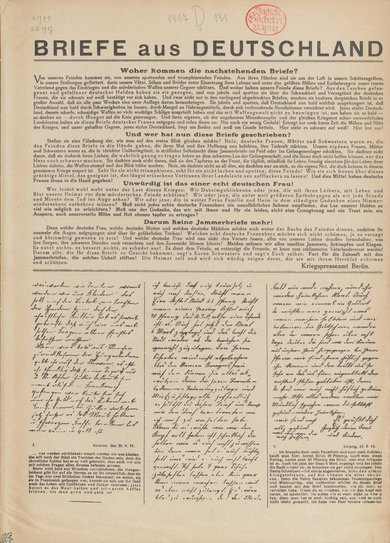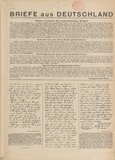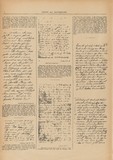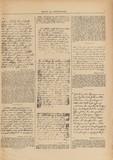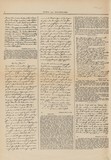The German domestic situation as an object of Allied propaganda
The German domestic situation as an object of Allied propaganda
They come from our enemies. From our mocking, triumphant enemies. […] Don’t you see them crowing, don’t you see them laughing and mocking, these enemies?
War Press Office, Letters from Germany, 1916
By 1916 at the latest the naval blockade by Great Britain and domestic political errors in the distribution of food and other essential goods had a drastic effect on the life of the German population. Food was rationed or simply unavailable, and the lack of coal deliveries left many households freezing during the winter. At the same time the impression grew among the disadvantaged masses that they in particular were suffering from the privations of the war, while a small elite from the field of business, the military and politics became increasingly wealthy. The euphoria and certainty of victory that had existed in some cities in August 1914 had disappeared. Two years later, people were merely concerned with survival and holding out.
These experiences were also reflected in letters written by people at home, usually women, to the soldiers. Their lines told of frustration and a desire for peace, and most of them could not be subjected to censorship because of the sheer amount.
The Allied propaganda offices regarded these letters as a perfect source for demonstrating to the German soldiers the desolate economic state of their country. Fallen and captured soldiers were relieved of their letters, which were then examined for suitable passages. If propagandists found any of these so-called Moaning letters on the soldiers, they were reproduced and dropped across German lines from airplanes and balloons.
The German military leadership took this form of propaganda so seriously that it published excerpts from the "Moaning letters", preceded by a text ordering women to desist from writing letters with such content to soldiers. At the same time, fighters at the front were forbidden from carrying any personal items with them in the event of an attack, which always cost many lives among the attackers.

